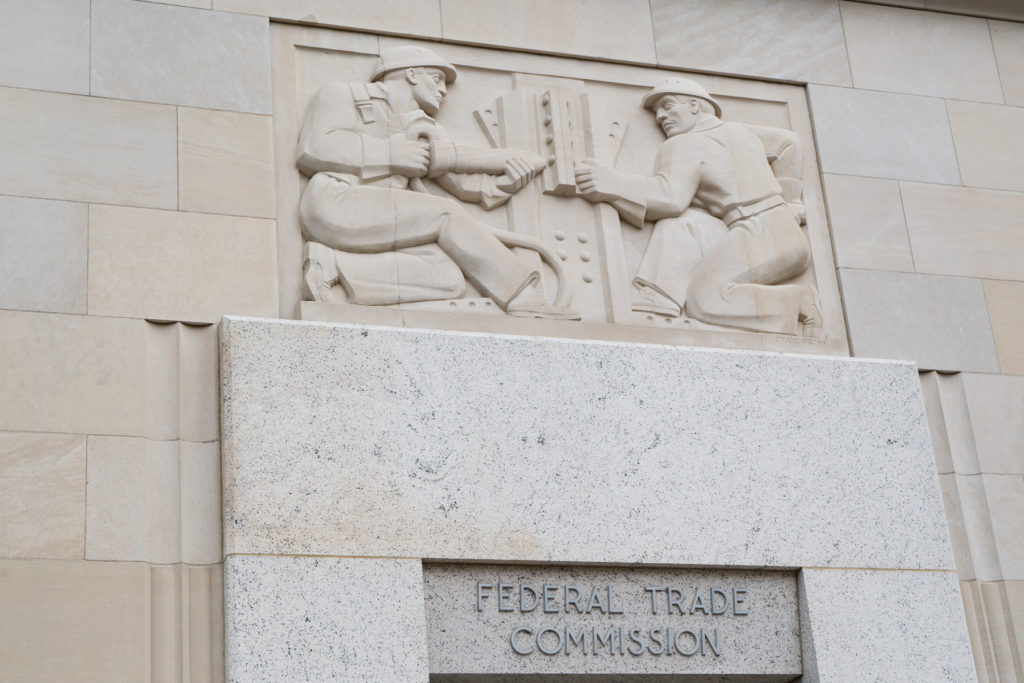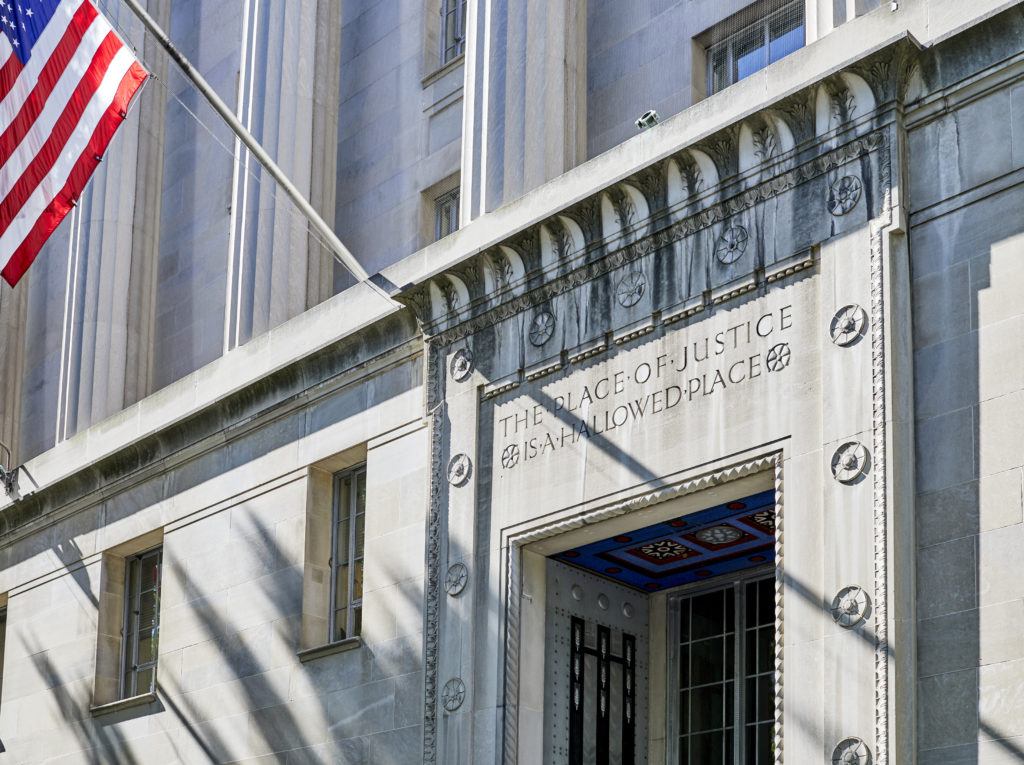
Mystery-shopping could let auto body shops research prevailing rates
By onBusiness Practices | Insurance | Legal | Market Trends
If an insurer proclaims a certain labor rate reflects the market but won’t reveal the data behind that amount, repairers might have a means of “checking their work” without risking antitrust violations.
Shops fear discussion of labor rates out of concern they’ll be accused of conspiring to fix prices — which is obviously illegal.
But the only way to see if an insurer has fairly calculated the prevailing rate would be to ask “door rates”/posted rates for other shops in a market: the price that shop would tell any random cash-pay consumer who walked in off the street and asked. Essentially, a collision repairer’s MSRP.
Such paralysis produces a situation in which the insurer holds all the cards.
But shops can ask each other’s door rate just as a consumer would as long as it’s done anonymously, according to an attorney who specializes in antitrust compliance. (Note: None of the analysis or reporting in this article should be considered legal advice. Consult with a qualified attorney licensed in your state before taking any action that could violate state or federal law.)
Mystery shopping is perfectly legal, but the owner of Shop A calling the owner of Shop B is not mystery shopping if the two know each other, the attorney said on background. The same would be true if a staffer from Shop A made the calls and the person responding from Shop B recognized the caller and workplace, he said.
Shop A can still ask the door rate of Shop B — the call just has to be done with someone Shop B won’t recognize, the attorney said.
We also asked the Federal Trade Commission and Department of Justice if a vanilla request for a competitor’s posted, public rate was permitted. Something like:
CALLER: What do you charge?
SHOP: (Declares door rate.)
CALLER: Thank you. (Hangs up the phone.)
“I don’t think that’s really an antitrust question,” FTC spokeswoman Betsy Lordan wrote in an email May 28. “The business isn’t compelling the other business to answer and I wouldn’t think it could. I suppose if the inquiring business called over and over again it could be considered harassment, but laws on that probably vary from state to state.”
We asked for more clarification that this simple exchange asking and answering “what do you charge” — not, “Hey, let’s both charge $Y,” or “You better charge $Y because we’re charging $Z” — would be OK.
“As far as I know,” Lordan wrote. “But there may be reasons why it’s not ok, according to the laws of whatever state the auto body shop is in.”
The Department of Justice, which also regulates such antitrust violations at the criminal level, wouldn’t speak on the record about the issue.
However, we found indicators that asking a competitor’s posted rate would not be a violation so long as the conversation didn’t veer into collusion or sharing sensitive information.
A Department of Justice antitrust primer describes price-fixing as a scenario requiring a business take some sort of action beyond asking a competitor’s price:
Price fixing is an agreement among competitors to raise, fix, or otherwise maintain the price at which their goods or services are sold. It is not necessary that the competitors agree to charge exactly the same price, or that every competitor in a given industry join the conspiracy. Price fixing can take many forms, and any agreement that restricts price competition violates the law. Other examples of price-fixing agreements include those to:
• Establish or adhere to price discounts.
• Hold prices firm.
• Eliminate or reduce discounts.
• Adopt a standard formula for computing prices.
• Maintain certain price differentials between different types, sizes, or quantities of products.
• Adhere to a minimum fee or price schedule
• Fix credit terms.
• Not advertise prices.
In many cases, participants in a price-fixing conspiracy also establish some type of policing mechanism to make sure that everyone adheres to the agreement. (Minor formatting edits.)
As a DOJ primer for law enforcement states:
Agreement Is Key. The agreement is the essence of a Section 1 violation. To prove an agreement, we must establish a meeting of the minds or mutual understanding between two or more independent business entities or individuals. The agreement can be established by direct evidence (e.g., co-conspirator testimony that the defendant agreed to fix prices) or circumstantial evidence (e.g., bids that establish a pattern of business being rotated among competitors). (Emphasis DOJ’s.)
An FTC Q&A also suggests, for example, that nothing is wrong with gas stations advertising their prices in big letters to each other and the world:
Q: The gasoline stations in my area have increased their prices the same amount and at the same time. Is that price fixing?
A: A uniform, simultaneous price change could be the result of price fixing, but it could also be the result of independent business responses to the same market conditions. For example, if conditions in the international oil market cause an increase in the price of crude oil, this could lead to an increase in the wholesale price of gasoline. Local gasoline stations may respond to higher wholesale gasoline prices by increasing their prices to cover these higher costs. Other market forces, such as publicly posting current prices (as is common with most gasoline stations), encourages suppliers to adjust their own prices quickly in order not to lose sales. If there is evidence that the gasoline station operators talked to each other about increasing prices and agreed on a common pricing plan, however, that may be an antitrust violation. (Emphasis ours.)
The Q&A continues:
Q: Our company monitors competitors’ ads, and we sometimes offer to match special discounts or sales incentives for consumers. Is this a problem?
A: No. Matching competitors’ pricing may be good business, and occurs often in highly competitive markets. Each company is free to set its own prices, and it may charge the same price as its competitors as long as the decision was not based on any agreement or coordination with a competitor.
Communicating information without an agreement to do something with it wouldn’t seem to qualify — unless it’s “competitively sensitive information.”
In terms of sharing “competitively sensitive information,” an example can be found in the DOJ’s announcement Nov. 13, 2018, of a settlement with six broadcasters.
The DOJ alleged the companies were exchanging information that went deeper than their ad rates.
According to the complaint, the six broadcast television companies agreed in many metropolitan areas across the United States to exchange revenue pacing information, and certain defendants also engaged in the exchange of other forms of non-public sales information in certain metropolitan areas. Pacing compares a broadcast station’s revenues booked for a certain time period to the revenues booked in the same point in the previous year. Pacing indicates how each station is performing versus the rest of the market and provides insight into each station’s remaining spot advertising for the period.
By exchanging pacing information, the broadcasters were better able to anticipate whether their competitors were likely to raise, maintain, or lower spot advertising prices, which in turn helped inform the stations’ own pricing strategies and negotiations with advertisers. As a result, the information exchanges harmed the competitive price–setting process.
“We also want to remind businesses, as well as the antitrust practitioners that advise them, that agreements between competitors to exchange competitively sensitive information can violate the antitrust laws and lead to a civil enforcement action even if the conduct does not amount to the type of hard core cartel conduct that the Antitrust Division prosecutes criminally,” Assistant Attorney General Makran Delraham told an American Bar Association forum Nov. 15, 2018, after referencing the settlement.
Clearly, that’s something for businesses to take seriously and not violate.
But a publicly available or advertised door rate doesn’t sound “competitively sensitive,” based on the gas station example above. In fact, the DOJ’s “Antitrust Primer” notes that a conspiracy not to advertise rates could also be considered price-fixing.
The FTC offered some more perspective on what pricing information would be competitively sensitive in a 2013 settlement that Bosley and Hair Club improperly shared such data.
“The information exchanged by the companies’ CEOs included details about future product offerings, surgical hair transplantation price floors and discounts, plans for business expansion and contraction, and current business operations and performance,” the FTC wrote.
Obviously, as noted above, a shop should run its plans past a qualified attorney licensed in their state before taking any action that could violate state or federal law. But they might find that they have more power in checking an insurer’s prevailing rate assertions than they think.
More information:
“AN ANTITRUST PRIMER FOR FEDERAL LAW ENFORCEMENT PERSONNEL”
Department of Justice, September 2018
Department of Justice, Nov. 15, 2018
DOJ, Nov. 13, 2018
DOJ
“Bosley, Inc., Aderans America Holdings, Inc., and Aderans Co., Ltd.” portal
FTC, June 5, 2013
Images:
Mystery shopping. (bubaone/iStock)
The Federal Trade Commission building is shown in March 2016. (pabradyphoto/iStock)
The Robert F. Kennedy Department of Justice building entrance is shown in June 2018. (wingedwolf/iStock)


